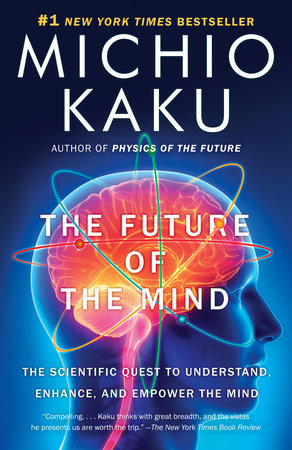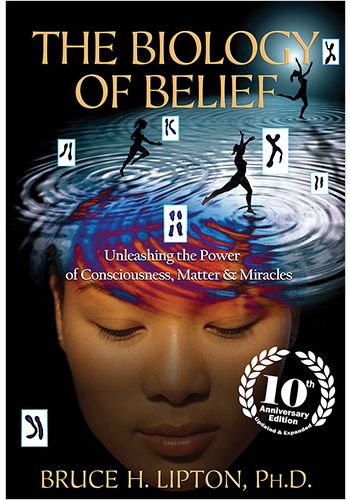
By Rupert Sheldrake, Terence McKenna, Ralph Abraham, Jean Houston (foreword) — 2001
In this book of “trialogues,” the late psychedelic visionary and shamanologist Terence McKenna, acclaimed biologist and originator of the morphogenetic fields theory Rupert Sheldrake, and mathematician and chaos theory scientist Ralph Abraham explore the relationships between chaos and... See more...
FULL SUMMARY
In this book of “trialogues,” the late psychedelic visionary and shamanologist Terence McKenna, acclaimed biologist and originator of the morphogenetic fields theory Rupert Sheldrake, and mathematician and chaos theory scientist Ralph Abraham explore the relationships between chaos and creativity and their connection to cosmic consciousness. Their observations call into question our current views of reality, morality, and the nature of life in the universe. The authors challenge the reader to the deepest levels of thought with wide-ranging investigations of the ecology of inner and outer space, the role of chaos in the dynamics of human creation, and the resacralization of the world. Among the provocative questions the authors raise are: Is Armageddon a self-fulfilling prophecy? Are we humans the imaginers or the imagined? Are the eternal laws of nature still evolving? What is the connection between physical light and the light of consciousness?
YOU MIGHT ALSO LIKE
CLEAR ALL
BY TOPIC
BY TYPE
FILTER

TOPIC
- Self-Development (26)
- Self-Discovery (22)
- Healing Approaches (20)
- Neuroscience (18)
- Self-Expression (18)
- Human Potential (16)
- Quantum Physics (14)
- Self-Healing (14)
- The Unconscious (13)
- Altered States (12)
- Mind-Body Connection (12)
- Transformation (12)
- Psychology and Spirituality (11)
- Spiritual Awakening (11)
- Connection with Nature (10)
- Self-Reflection Practices (10)
- Conscious Evolution (9)
- Spiritual Growth (9)
- Growth Mindset (8)
- Inspiration (8)
- Self-Actualization (8)
- Self-Limiting Beliefs (8)
- Afterlife (7)
- Authenticity (7)
- Awareness (7)
- Building Character (7)
- Emotional and Mental Health (7)
- Honoring Emotion (7)
- Journaling (7)
- Leadership (7)
- Near-Death Experience (7)
- Spiritual Life (7)
- Transpersonal Psychology (7)
- Anxiety (6)
- Buddhism (6)
- Empowerment (6)
- Enlightenment (6)
- Entrepreneurship (6)
- Interdependence (6)
- Joy (6)
- Jungian Analysis (6)
- Peak Performance (6)
- Perception (6)
- Play (6)
- Resilience (6)
- Search for Purpose (6)
- Self-Discipline (6)
- Self-Realization (6)
- Trauma Healing (6)
- Anger (5)
- Awe (5)
- Depression (5)
- Inner Life (5)
- Integrative Medicine (5)
- Living with Illness (5)
- Meditation (5)
- Motivation (5)
- Mysticism (5)
- Neuropsychology (5)
- Non-Duality (5)
- Philosophical Approaches (5)
- Presence (5)
- Psychology (5)
- Speaking Your Truth (5)
- Spiritual Healing (5)
- Storytelling (5)
- Visions and Hallucinations (5)
- Addiction (4)
- Athlete Well-Being (4)
- BIPOC Well-Being (4)
- Cognitive Psychology (4)
- Courage (4)
- Dreamwork (4)
- Epigenetics (4)
- Finding Meaning (4)
- Habit Formation (4)
- Happiness (4)
- Inner Peace (4)
- Mindfulness (4)
- Parenting (4)
- Passion (4)
- Past Lives and Reincarnation (4)
- Personal Development (4)
- Productivity (4)
- Psychedelic-Assisted Therapy (4)
- Psychoanalysis (4)
- Self-Reckoning (4)
- Slumps (4)
- Spiritual Development (4)
- Access to Education (3)
- Aging (3)
- Art Therapy (3)
- Cancer (3)
- Chronic Health Conditions (3)
- Cognition (3)
- Community Healing (3)
- Death and Dying (3)
- DMT (3)
- Dream Analysis (3)
- Ecospirituality (3)
- Energy Healing (3)
- Fear (3)
- Global Challenges (3)
- Goal Setting (3)
- God (3)
- Grit (3)
- Holism (3)
- Holotropic Breathwork (3)
- Identity (3)
- Illness and Injury (3)
- Inner Child (3)
- Inner Strengths (3)
- Islam (3)
- Life Challenges (3)
- LSD (3)
- MDMA (3)
- Naturopathy (3)
- Oneness (3)
- Other Dimensions and Beings (3)
- Positive Self-Talk (3)
- Problem Solving (3)
- Psilocybin (3)
- Self-Control (3)
- Soul Mission (3)
- Spiritual Practices (3)
- Tibetan Buddhism (3)
- Values (3)
- Visualization (3)
- Well-Being (3)
- Wholeness (3)
- Addiction Recovery (2)
- Archetypes (2)
- Black Well-Being (2)
- Brain Health (2)
- Child’s ADD/ADHD (2)
- Child’s Challenging Behavior (2)
- Children’s Well-Being (2)
- Communication Skills (2)
- Comparing Belief Traditions (2)
- Competition (2)
- Confidence (2)
- Curiosity (2)
- Ego (2)
- Ego Transcendence (2)
- Emotional Intelligence (EQ) (2)
- Facing Own Death (2)
- Faith (2)
- Fellowship and Community (2)
- Focus (2)
- Forest Bathing (2)
- Habits of Mind (2)
- Indigenous Healing Approaches (2)
- Indigenous Well-Being (2)
- Integrity (2)
- Intergenerational Trauma (2)
- Intuition (2)
- Jealousy/Envy (2)
- Judaism (2)
- Lifestyle Medicine (2)
- Loneliness (2)
- Longevity (2)
- Love (2)
- Memory (2)
- Moral Philosophy (2)
- Native American Beliefs (2)
- Negative Self-Talk (2)
- Neoshamanism (2)
- Parapsychology (2)
- Past Life Regression (2)
- Positive Psychology (2)
- Prayer (2)
- Psychedelic Research (2)
- Racism (2)
- Relationship with Money (2)
- Religious Experience (2)
- Retirement (2)
- Sacred Feminine (2)
- Self-Care (2)
- Self-Worth (2)
- Spiritual Crisis (2)
- Spiritual Direction (2)
- Synchronicity (2)
- Taoism (2)
- The Divine (2)
- Transcendent Experience (2)
- Trauma (2)
- Willpower (2)
- Work Challenges (2)
- Yoga (2)
- Zen Buddhism (2)
- Abandonment (1)
- Accepting Love (1)
- Activism/Service (1)
- Alcohol Addiction (1)
- Anima/Animus (1)
- Astral Projection (1)
- Ayahuasca (1)
- Ayurveda (1)
- Belonging (1)
- Breathwork (1)
- Building Culture (1)
- Channeling (1)
- Chanting (1)
- Child Depression (1)
- Child’s Anxiety (1)
- Child’s Trauma (1)
- Christianity (1)
- Cognitive Behavioral Therapy (1)
- Collective Trauma (1)
- Conscience (1)
- Decision Making (1)
- Dharma (1)
- Diet and Nutrition (1)
- Disconnection (1)
- Dysfunctional Childhood (1)
- Embodiment (1)
- Empathy (1)
- Endurance (1)
- Existentialism (1)
- Failure (1)
- Family Dynamics (1)
- Female Empowerment (1)
- Financial Instability (1)
- Freedom (1)
- Functional Medicine (1)
- Grace (1)
- Grief (1)
- Guilt (1)
- Handling a Loved One’s Illness (1)
- Heartmath (1)
- Higher Calling (1)
- Hinduism (1)
- Homeopathy (1)
- Humility (1)
- Imposter Syndrome (1)
- Intention (1)
- Intimacy (1)
- Karma (1)
- Kids and Sports (1)
- Kindness (1)
- Learning Styles (1)
- Letting Go (1)
- Life Force Energy (1)
- Manifestation (1)
- Mantra Meditation (1)
- Masculine/Feminine Dynamics (1)
- Mediums (1)
- Memoir (1)
- Mental Health Challenges (1)
- Midlife Crisis (1)
- Mindfulness Practices (1)
- Movement Meditation (1)
- Neurodiversity (1)
- Offering Support to Others (1)
- Personality Typing (1)
- Physical Health (1)
- Plant Spirit Medicine (1)
- Plant-Based Medicine (1)
- Poetry (1)
- Positive Thinking (1)
- Postpartum Depression (1)
- Poverty/Economic Inequality (1)
- Psychic Abilities (1)
- PTSD (1)
- Racial Healing (1)
- Reiki (1)
- Relationship Challenges (1)
- Relationship with Time (1)
- Ritual (1)
- Romantic Relationships (1)
- Self-Acceptance (1)
- Self-Compassion (1)
- Self-Employment (1)
- Self-Esteem (1)
- Self-Love (1)
- Self-Reliance (1)
- Shadow (1)
- Shame (1)
- Spiritual Quest (1)
- Spirituality and Health (1)
- Spirituality and Politics (1)
- Stoicism (1)
- Stress Management (1)
- Subconscious (1)
- Suffering (1)
- Sustainability (1)
- Synesthesia (1)
- Telepathy (1)
- Traditional Chinese Medicine (1)
- Trust (1)
- Unfulfilled Career (1)
- Veteran Well-Being (1)
- Vulnerability (1)
- Women’s Well-Being (1)
- Work Ethic (1)
- Work Relationships (1)
- Work-Life Balance (1)
FILTER

TEACHER
- Ervin László (5)
- Stanislav Grof (5)
- Kenneth Robinson (4)
- Pierre Teilhard de Chardin (4)
- David R. Hawkins (3)
- don Miguel Ruiz (3)
- Larry Dossey (3)
- Peter Russell (3)
- Rick Strassman (3)
- SARK (3)
- Bernie S. Siegel (2)
- Charles Tart (2)
- David Bohm (2)
- Debbie Ford (2)
- Deepak Chopra (2)
- Diane Ackerman (2)
- Elizabeth Gilbert (2)
- Fritjof Capra (2)
- J. Krishnamurti (2)
- Judith Blackstone (2)
- Martin Seligman (2)
- Matthieu Ricard (2)
- Mihály Csíkszentmihályi (2)
- Nancy Mellon (2)
- Natalie Goldberg (2)
- Ram Dass (2)
- Rupert Sheldrake (2)
- Scott Edelstein (2)
- Seyyed Hossein Nasr (2)
- Sonia Sanchez (2)
- Temple Grandin (2)
- The Dalai Lama (2)
- Willis Harman (2)
- Adam Grant (1)
- Alain de Botton (1)
- Albert Hofmann (1)
- Amishi Jha (1)
- Amy Morin (1)
- Andrew Weil (1)
- Ann Druyan (1)
- Anne Lamott (1)
- Arnold Mindell (1)
- Brené Brown (1)
- Brian Tracy (1)
- Bruce Lipton (1)
- Chip Conley (1)
- Daniel Amen (1)
- Daniel Goleman (1)
- David Whyte (1)
- Dennis McKenna (1)
- Diane Stein (1)
- don Jose Ruiz (1)
- Dorothy Day (1)
- Eben Alexander (1)
- Edgar Mitchell (1)
- Ellen Langer (1)
- Evelyn Rysdyk (1)
- Frans Stiene (1)
- Gary Zukav (1)
- Gay Hendricks (1)
- Gregg Braden (1)
- Heidi Campbell (1)
- Howard Gardner (1)
- Jacqueline Novogratz (1)
- James Hillman (1)
- Jane Roberts (1)
- Joanna Macy (1)
- John Perry (1)
- Jon Kabat-Zinn (1)
- Joseph M. Marshall III (1)
- Judith Orloff (1)
- Krista Tippett (1)
- Lorin Roche (1)
- Louise Hay (1)
- Marc Ian Barasch (1)
- Maria Popova (1)
- Mary Oliver (1)
- Matt Kahn (1)
- Matthew Fox (1)
- Maya Angelou (1)
- Michio Kaku (1)
- Oliver Sacks (1)
- Oprah Winfrey (1)
- Parker J. Palmer (1)
- Phillip Moffitt (1)
- Queen Afua (1)
- Rainer Maria Rilke (1)
- Ralph Metzner (1)
- Rebecca Solnit (1)
- Reema Datta (1)
- Richard Davidson (1)
- Rick Doblin (1)
- Robert A. Monroe (1)
- Robert Augustus Masters (1)
- Rudolph Ballentine (1)
- Sam Harris (1)
- Sri Aurobindo (1)
- Steven Kotler (1)
- Thomas Moore (1)
- Toni Morrison (1)
- Tony Robbins (1)
- William Barber (1)









